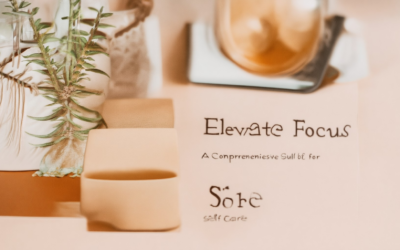Embracing Mindful Living: A Journey to Balance and Harmony Through Orlando Therapists and Mindful Living Center Practices offers a comprehensive guide to cultivating mindfulness in everyday life, helping individuals navigate the complexities of modern existence and discover a deeper sense of balance and harmony. By exploring the concept of mindful living, its benefits, and practical applications, this article aims to empower readers to embark on a transformative journey towards greater self-awareness, stress reduction, and overall well-being, guided by expert insights from Orlando therapists and the principles of mindful living centers.
To Start Mindful Living: A Comprehensive Guide
Mindfulness is the practice of being present in the moment, paying attention to your thoughts, feelings, and sensations without judgment. It involves cultivating awareness, acceptance, and compassion for yourself and others. By incorporating mindfulness into your daily life, you can experience numerous physical, emotional, and mental benefits.
What is Mindfulness?
Mindfulness is a powerful tool for reducing stress and increasing overall well-being. According to research, mindfulness can have a positive impact on both physical and mental health. Studies have found that regular mindfulness practice can reduce stress, anxiety, and depression, while also improving sleep quality, digestion, and overall well-being (Orlando Therapists). Additionally, mindfulness has been shown to increase gray matter in areas of the brain associated with attention, emotion regulation, and memory (Neuroscience for Wellness).
Benefits of Mindfulness
The benefits of mindfulness are numerous and well-documented. Regular mindfulness practice can lead to reduced stress and anxiety, improved sleep quality, and increased overall well-being. Mindfulness has also been shown to improve emotional regulation, increase focus and concentration, and enhance cognitive function (Mindful.org). By incorporating mindfulness into your daily life, you can experience these benefits firsthand and improve your overall quality of life.
How to Practice Mindfulness
Practicing mindfulness is easier than you might think. One of the most effective ways to cultivate mindfulness is to focus on the present moment. This involves letting go of worries about the past or future, and instead, concentrating on the here and now. You can do this by paying attention to your breath, body sensations, or sensory experiences such as sights, sounds, and smells. Regular mindfulness practice can help you develop greater awareness of your thoughts, emotions, and behaviors, allowing you to respond to situations more skillfully and make more intentional choices.
Creating a Calming Environment
Your environment plays a significant role in shaping your mood and overall sense of well-being. Creating a calming environment can involve making small changes to your home or workspace, such as adding plants, using soothing colors, or playing calming music. You can also try incorporating elements of nature, such as bringing in a vase of fresh flowers or placing a small water feature nearby. By creating a peaceful atmosphere, you can reduce stress and promote relaxation.
Rest and Recovery
Getting enough rest and recovery is essential for maintaining good physical and mental health. Research has shown that chronic sleep deprivation can lead to impaired cognitive function, mood disturbances, and increased risk of chronic diseases (Harvard Health Publishing). To prioritize rest and recovery, aim for 7-9 hours of sleep per night, establish a consistent sleep schedule, and avoid stimulating activities before bedtime. You can also try incorporating relaxing activities, such as yoga or meditation, into your daily routine to promote relaxation and reduce stress.
Moving Your Body Daily
Regular exercise is essential for maintaining physical and mental health. Exercise has been shown to reduce symptoms of anxiety and depression, improve sleep quality, and boost mood (American College of Sports Medicine). To incorporate more movement into your daily routine, try finding activities you enjoy, such as walking, running, swimming, or dancing. Aim for at least 30 minutes of moderate-intensity exercise per day, and consider incorporating strength training or high-intensity interval training to challenge yourself and promote progress.
Taking One Step Forward
Finally, taking one step forward towards your goals and aspirations can be incredibly empowering. Whether it’s setting a new goal, seeking out new opportunities, or simply taking action towards a project you’ve been putting off, taking small steps towards your dreams can help build momentum and confidence. Remember that progress is often incremental, and it’s okay to take things one step at a time. By focusing on small wins and celebrating your successes, you can stay motivated and inspired to continue moving forward.
Understanding Mindful Living
The concept of mindful living is rooted in Buddhist teachings, which emphasize being fully engaged in the current moment while cultivating a non-judgmental awareness of one’s thoughts, emotions, and bodily sensations. This mindfulness practice has been widely adopted in modern times, with numerous benefits for overall well-being, including reduced stress levels, improved emotional regulation, and enhanced cognitive function.
Mindful Habits Example: Incorporating Mindfulness into Daily Routine
Incorporating mindful living into daily life can be achieved through simple yet effective techniques. For instance, practicing meditation and deep breathing exercises can increase self-awareness and calm the mind. Engaging in physical activities such as yoga or tai chi can promote body awareness and relaxation. Additionally, paying attention to sensory experiences, such as the sensation of food on the tongue or the sound of nature, can cultivate mindfulness. Setting aside time for reflection and journaling can also process emotions and gain insight into thought patterns.
Mindful Life Meaning and Purpose
A mindful life is one that values presence and awareness. It is a life that seeks to understand the present moment, without judgment or attachment. This understanding allows individuals to develop a more compassionate and authentic relationship with themselves and others. According to Jon Kabat-Zinn, “Mindfulness is the intentional act of paying attention on purpose, in the present moment, and non-judgmentally.” By embracing this mindset, individuals can find meaning and purpose in their lives, leading to a more fulfilling and balanced existence.
Mindful Living Tips for Stress Reduction
Stress is a common challenge many people face in today’s fast-paced world. However, mindful living offers a powerful tool for reducing stress and increasing overall well-being. One effective tip is to practice mindfulness meditation, which can calm the mind and reduce feelings of anxiety. Another approach is to engage in physical activities that promote body awareness and relaxation, such as yoga or tai chi. By incorporating these mindful living tips into daily life, individuals can better manage stress and cultivate a more peaceful state of mind.
How Mindfulness Affects Mental Health
Research has consistently shown that mindfulness can have a profoundly positive impact on mental health. Studies have demonstrated that mindfulness-based interventions can lead to significant reductions in symptoms of anxiety and depression. Mindfulness has also been shown to enhance cognitive function, particularly in older adults. Furthermore, mindfulness can increase self-awareness, allowing individuals to better understand their thoughts, emotions, and behaviors. By incorporating mindfulness into daily life, individuals can take a proactive approach to maintaining good mental health.
Orlando Therapists
For those looking to explore mindful living further, consulting with an experienced therapist can be incredibly beneficial. Orlando therapists, such as those found at Orlando Therapists, offer personalized guidance and support to help individuals develop a mindful living practice that suits their unique needs and goals.

Understanding Mindful Living
Mindful living is a holistic approach to life that emphasizes being present in the moment, accepting oneself and others, and cultivating a deeper connection with nature and the world around us.
Mindful Habits Example: Incorporating Mindfulness into Daily Routine
Incorporating mindfulness into our daily routine can have a profound impact on our mental and physical well-being. By setting aside just a few minutes each day to focus on our breath, body sensations, or sensory experiences, we can reduce stress and increase feelings of calm and contentment.
According to experts at the Mindful Living Center, mindful habits can be developed through consistent practice and patience. Start by taking a few deep breaths, noticing the sensation of the air moving in and out of your body, and gradually expand your awareness to include your surroundings and emotions.
Mindful Life Meaning and Purpose
A mindful life is one that is grounded in values and principles that bring us joy and fulfillment. By cultivating self-acceptance, self-compassion, and a sense of purpose, we can live a life that is authentic, meaningful, and aligned with our deepest desires.
Research has shown that individuals who practice mindfulness regularly report higher levels of life satisfaction and well-being. By focusing on the present moment and letting go of distractions, we can tap into a sense of flow and enjoyment that is often missing in our daily lives.
Mindful Living Tips for Stress Reduction
Stress is a natural part of modern life, but it doesn’t have to control our minds and bodies. By incorporating mindfulness into our daily routine, we can reduce stress and increase feelings of calm and relaxation.
One effective tip is to take a few minutes each day to focus on your breath, noticing the sensation of the air moving in and out of your body. Another tip is to engage in physical activity that brings you joy, such as walking, yoga, or dancing.
How Mindfulness Affects Mental Health
Mindfulness has been shown to have a positive impact on mental health, reducing symptoms of anxiety and depression and increasing feelings of calm and well-being.
By cultivating mindfulness, we can develop a greater awareness of our thoughts, emotions, and behaviors, allowing us to make more informed choices and live a life that is authentic and fulfilling.
Benefits of Regular Mindfulness Practice
Regular mindfulness practice has numerous benefits, including reduced stress and anxiety, increased feelings of calm and well-being, and improved sleep quality.
Additionally, mindfulness has been shown to improve cognitive function, including attention, memory, and problem-solving ability.
How to Make Mindfulness a Habit
Making mindfulness a habit takes time and practice, but it is worth the effort. Here are a few tips to get you started:
- Start small: Begin with just a few minutes of mindfulness practice each day and gradually increase the duration as you become more comfortable with the practice.
- Be consistent: Try to practice mindfulness at the same time each day, so it becomes a habitual part of your routine.
- Find a quiet space: Identify a quiet, comfortable space where you can practice mindfulness without distractions.
With patience, persistence, and dedication, you can make mindfulness a habit that brings joy, peace, and fulfillment to your life.
Practicing Mindfulness
Now that you have incorporated mindfulness practices into your daily routine, it’s time to dive deeper into the world of mindful living. By understanding the concept of mindful living and its significance, you can begin to see the impact it can have on your mental and physical well-being.
Understanding Mindful Living
Mindful living is a holistic approach to life that emphasizes being present in the moment and fully engaged with your thoughts, feelings, and surroundings. It involves cultivating awareness of your thoughts, emotions, and bodily sensations, and using this awareness to inform your actions and decisions.
According to Orlando therapists, mindful living is not just about reducing stress and anxiety, but also about increasing feelings of joy, compassion, and connection to oneself and others. By practicing mindfulness, you can develop a greater sense of self-awareness, which can lead to positive changes in your relationships, work, and overall quality of life.
Mindful Habits Example: Incorporating Mindfulness into Daily Routine
Incorporating mindfulness into your daily routine can be as simple as taking a few deep breaths before starting your day, or paying attention to your senses during meals. For example, you might try eating slowly and savoring each bite, or listening to calming music while commuting to work.
By making small changes to your daily routine, you can begin to cultivate a greater sense of mindfulness and presence. Remember, the goal of mindful living is not to achieve a specific state or outcome, but rather to simply be present in the moment and enjoy the journey.
Outbound Link: Learn More About Mindful Living from Expert Therapists in Orlando (Orlando Therapies)
How to Benefit from Mindfulness Which Technique is Essential?
While there are many mindfulness techniques to choose from, some research suggests that loving-kindness meditation may be particularly beneficial for reducing stress and anxiety. However, the most important thing is to find a technique that resonates with you and that you enjoy practicing regularly.
Inner Link: Read More About Loving-Kindness Meditation on Our BlogLoving-Kindness Meditation Benefits
How Mindfulness Can Change Your Life
Mindfulness has been shown to have a profound impact on both physical and mental health. By reducing stress and anxiety, and increasing feelings of joy and compassion, mindfulness can help you live a happier, healthier life.
Inner Link: Discover the Power of Mindfulness for Better HealthMindfulness for Health Benefits
Practicing Mindfulness
Now that you have set your intention and identified your goals, it’s time to start practicing mindfulness. Here are some tips to help you get started:
How to Practice Mindfulness in Daily Life?
One of the easiest ways to practice mindfulness is to bring it into your daily activities. For example, you can pay attention to your breath while you’re brushing your teeth or eating breakfast. You can also try to notice the sensations in your body as you move through your day.
Mindful habits book recommendations can also be helpful in guiding you through the process. Some popular books include “The Miracle of Mindfulness” by Thich Nhat Hanh and “Wherever You Go, There You Are” by Jon Kabat-Zinn.
Mindfulness Techniques for Improved Focus and Concentration
Another important aspect of mindfulness practice is learning various techniques to improve focus and concentration. One technique is to focus on your breath, noticing the sensation of the air entering and leaving your nostrils. Another technique is to pay attention to your body sensations, noticing areas of tension or relaxation.
A study published in the Journal of Cognitive Psychology found that mindfulness meditation can improve attention and working memory (Moran et al., 2011).
To Benefit from Mindfulness Which Technique is Essential?
While there are many techniques to choose from, some research suggests that loving-kindness meditation may be particularly beneficial for improving mental health outcomes (Fredrickson et al., 2008).
Loving-kindness meditation involves focusing on sending kindness and compassion to oneself and others.
Mindfulness Center Classes and Workshops
Another great way to learn mindfulness is to take a class or workshop. Many mindfulness centers offer classes specifically designed for beginners, covering topics such as mindfulness meditation, yoga, and mindful movement.
The Mindful Center offers a variety of classes and workshops, including mindfulness meditation, yoga, and mindful movement.

Understanding Mindful Living
Mindful living is a holistic approach to life that emphasizes being present in the moment, aware of one’s thoughts, emotions, and surroundings. As practiced by Orlando therapists, it involves cultivating a non-judgmental awareness of the present moment, often through mindfulness meditation and other techniques.
Mindful Habits Example: Incorporating Mindfulness into Daily Routine
Incorporating mindfulness into daily routines can be simple yet powerful. For instance, taking a few deep breaths before starting work or during breaks can help reduce stress and increase focus. Similarly, practicing mindful walking or eating can enhance appreciation for everyday activities.
Mindful Life Meaning and Purpose
A mindful life is characterized by a sense of purpose and meaning. By reflecting on values and goals, individuals can align their actions and decisions with their core aspirations. This, in turn, fosters a deeper sense of fulfillment and satisfaction.
Mindful Living Tips for Stress Reduction
Stress reduction is a primary benefit of mindful living. Techniques such as progressive muscle relaxation, visualization, and mindfulness meditation can help calm the mind and body. Regular practice can lead to reduced cortisol levels, improved sleep, and enhanced overall well-being.
How Mindfulness Affects Mental Health
Mindfulness has been extensively researched for its positive effects on mental health. Studies have shown that regular mindfulness practice can decrease symptoms of anxiety and depression, improve mood regulation, and enhance cognitive functioning.
Practicing Mindfulness
Practicing mindfulness involves developing awareness of the present moment through various techniques. These may include:
- Body scan meditation: Focusing on physical sensations in the body
- Mindful breathing: Paying attention to breath patterns
- Walking meditation: Noticing sensations while walking
Mindful Habits Book Recommendations for Improvement
For those looking to deepen their mindfulness practice, several books offer valuable guidance and inspiration. Some recommended titles include:
- The Miracle of Mindfulness by Thich Nhat Hanh
- Mindfulness in Plain English by Bhante Henepola Gunaratana
- The Mind Illuminated by Culadasa
To Benefit from Mindfulness Which Technique is Essential?
While various mindfulness techniques can be beneficial, research suggests that mindfulness meditation is particularly effective for reducing stress and improving mental health outcomes.
Teaching Yourself Mindfulness
Teaching oneself mindfulness requires patience, consistency, and dedication. Here are some steps to get started:
Mindful Living Practices for Anxiety and Depression Relief
Mindfulness practices can be particularly helpful for managing anxiety and depression. Techniques such as loving-kindness meditation and guided imagery can promote feelings of calm and compassion.
Mindfulness Exercises for Improved Self-Awareness
Regular mindfulness practice can increase self-awareness by helping individuals develop a greater understanding of their thoughts, emotions, and behaviors.
Mindfulness Meditation Benefits and How to Get Started
Mindfulness meditation offers numerous benefits, including reduced stress, improved sleep, and increased focus. To get started, find a quiet, comfortable space and begin with short sessions (5-10 minutes).
Mindful Living Tips for Improving Relationships
Mindfulness can also enhance interpersonal relationships by promoting empathy, understanding, and effective communication. By practicing mindfulness in social interactions, individuals can respond more thoughtfully and respond to others with greater kindness.
Icebreaker Activities and Exercises
Icebreaker activities can be a fun and engaging way to introduce mindfulness into group settings. One popular activity is the “Two Roses and One Thorn” exercise, where participants share three things: two positive experiences and one challenge.
Mindful Living Center Events and Retreats
Many organizations, such as the Mindful Living Center, offer events and retreats specifically designed to promote mindfulness and well-being. These gatherings provide opportunities for connection, learning, and personal growth.
Mindful Habits Example: Using Mindfulness in Creative Pursuits
Mindfulness can also enhance creativity by increasing focus, reducing distractions, and fostering a greater sense of curiosity. Artists, writers, and musicians can benefit from incorporating mindfulness into their workflow.
Mindfulness and Emotional Intelligence
Mindfulness is closely tied to emotional intelligence, which encompasses skills such as self-awareness, empathy, and social skills. Developing emotional intelligence through mindfulness practice can lead to more harmonious relationships and better decision-making.
How Mindfulness Improves Cognitive Function
Mindfulness has been shown to improve cognitive function by increasing attention, memory, and processing speed. Regular practice can also enhance executive functions, such as planning and problem-solving.
Overcoming Challenges and Staying Motivated
Overcoming challenges in mindful living requires persistence, patience, and self-compassion. Here are some strategies for staying motivated:
How to Overcome Obstacles in Mindful Living Journey
Obstacles in mindful living can arise from various sources, including lack of motivation, difficulty in quieting the mind, or feeling overwhelmed by emotions. Strategies for overcoming these obstacles include breaking tasks into smaller steps, finding a supportive community, and practicing self-care.
Mindful Living Practices for Overcoming Procrastination
Procrastination is a common challenge in mindful living. Techniques such as breaking tasks into smaller steps, using the Pomodoro Technique, and practicing mindfulness meditation can help overcome procrastination and stay focused.
Mindful Habits Example: Using Mindfulness in Goal Setting
Mindfulness can also enhance goal setting by increasing clarity, focus, and motivation. By practicing mindfulness while setting goals, individuals can create a more realistic and achievable plan.
Mindfulness and Resilience Building
Mindfulness can play a significant role in building resilience by teaching individuals to cope with adversity, manage stress, and develop a growth mindset.
Benefits of Regular Mindfulness Practice
Regular mindfulness practice offers numerous benefits, including reduced stress, improved sleep, increased focus, and enhanced overall well-being.
Conclusion and Next Steps
Implementing mindful living practices into daily life requires commitment, patience, and self-compassion. By incorporating mindfulness into daily routines, individuals can experience profound benefits for mental health, relationships, and overall well-being.
Mindful Living Center Resources and Support
For those seeking guidance and support in mindful living, the Mindful Living Center offers a range of resources, including workshops, retreats, and online courses.
Mindful Habits Example: Incorporating Mindfulness into Daily Commute
Incorporating mindfulness into daily commutes can be a simple yet powerful way to reduce stress and increase focus. Try listening to guided meditations or simply paying attention to your breath while driving.
Mindfulness and Overall Well-being
Mindfulness has been shown to contribute significantly to overall well-being by reducing stress, improving sleep, and increasing feelings of happiness and fulfillment.
Mindfulness Has Been Shown to Do Which of the Following
Mindfulness has been extensively researched for its positive effects on mental health and well-being. Studies have shown that regular mindfulness practice can decrease symptoms of anxiety and depression, improve mood regulation, and enhance cognitive functioning.
Understanding Mindful Living
Mindful living is a holistic approach to life that emphasizes being present in the moment, aware of one’s thoughts, emotions, and surroundings. As Orlando therapists emphasize, mindful living is not just a practice, but a way of life that can bring numerous benefits to our physical, emotional, and mental well-being.
What is Mindful Living and Its Significance?
Mindful living is rooted in Buddhism and involves cultivating awareness of the present moment through meditation, deep breathing, and mindful movement. By practicing mindfulness, we can reduce stress, increase self-awareness, and develop a greater appreciation for life’s simple pleasures. According to research, mindfulness has been shown to have a positive impact on mental health, reducing symptoms of anxiety and depression.
Mindful Habits Example: Incorporating Mindfulness into Daily Routine
Incorporating mindfulness into our daily routine can be as simple as taking a few deep breaths before starting our day, paying attention to our senses during meals, or practicing yoga or tai chi. By making mindfulness a habit, we can cultivate a greater sense of calm, clarity, and focus, leading to improved productivity and overall well-being. For those looking to establish a mindful living practice, consider starting with short meditation sessions or guided mindfulness exercises.
Mindful Life Meaning and Purpose
At the heart of mindful living is a desire to find meaning and purpose in life. By cultivating awareness of our values, goals, and passions, we can align ourselves with what truly matters to us. This can involve exploring new hobbies, pursuing meaningful relationships, or finding ways to contribute to our communities. Ultimately, mindful living encourages us to live intentionally, embracing each moment with curiosity, openness, and a sense of wonder.
Mindful Living Tips for Stress Reduction
Stress is an inevitable part of modern life, but there are many ways to manage its effects. One effective strategy is to practice mindfulness, focusing on the present moment rather than dwelling on worries about the past or future. Other mindful living tips for stress reduction include engaging in regular exercise, connecting with nature, and prioritizing self-care activities such as meditation, yoga, or spending time with loved ones.
How Mindfulness Affects Mental Health
Research has consistently shown that mindfulness can have a positive impact on mental health, reducing symptoms of anxiety and depression while improving mood and overall well-being. By cultivating awareness of our thoughts, emotions, and behaviors, we can better understand ourselves and develop more effective coping strategies. Regular mindfulness practice can also lead to increased gray matter in areas of the brain associated with emotional regulation, memory, and attention.
Outbound Link: Learn More About Mindfulness and Mental Health
National Institute of Mental Health: Mindfulness and Mental Health




0 Comments